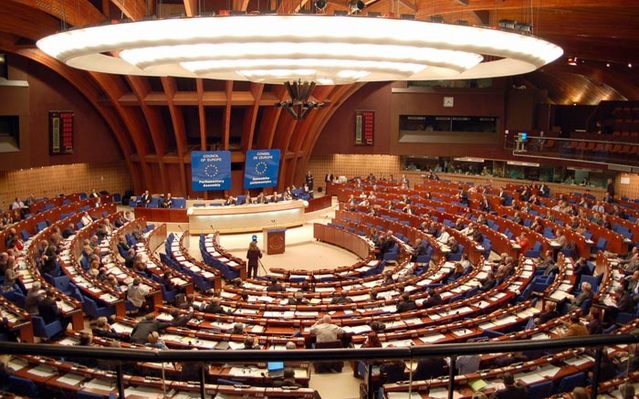 The Council of Europe's parliamentary assembly today approved a resolution which contains pro-abortion language. The resolution and its accompanying report promotes "legal and easier access to sexual rights and reproductive health services" such as "contraception and abortion".
The Council of Europe's parliamentary assembly today approved a resolution which contains pro-abortion language. The resolution and its accompanying report promotes "legal and easier access to sexual rights and reproductive health services" such as "contraception and abortion".
The resolution's subject is abandonment at birth. Its title describes abandonment as the first form of violence yet this is untrue. The first form of violence is abortion. The UN Convention on the Rights of the Child defines children as every human being under the age of 18. It calls for protection before as well as after birth.
What kind of world do politicians live in where they call for the abortion of children in order to avoid their abandonment at birth? Quite apart from the cruel fate of the children aborted, this policy will result in the abandonment of the mothers who are being aborted, and the continuation of the social problems which the report claims to address.
The Council of Europe is out of control. Assembly members appear completely out of touch with the overwhelming majority of Europeans, who will be appalled that such a resolution has been pushed through. We must spread the message far and wide – that the Council of Europe thinks that child abandonment can be solved by killing the children to be abandoned – with a view to addressing this serious situation in one of
Patrick Buckley, who spent the last few days lobbying for SPUC in
Despite promises to the contrary the report was not taken on a paragraph-by-paragraph basis. Six amendments were proposed and accepted.
Mr Michael Hancock, a British member of the Alliance of Liberals and Democrats for
- to raise awareness of the issue of abandonment
- to protect the interests of the child
- to ensure that every born child had the right to live and be given a decent chance to achieve his or her potential.
These are noble sentiments, but they ignore the unborn. Worse, the resolution contains language which puts them in even greater danger than at present. The assembly's resolutions can have significant influence on law, in particular human rights law.